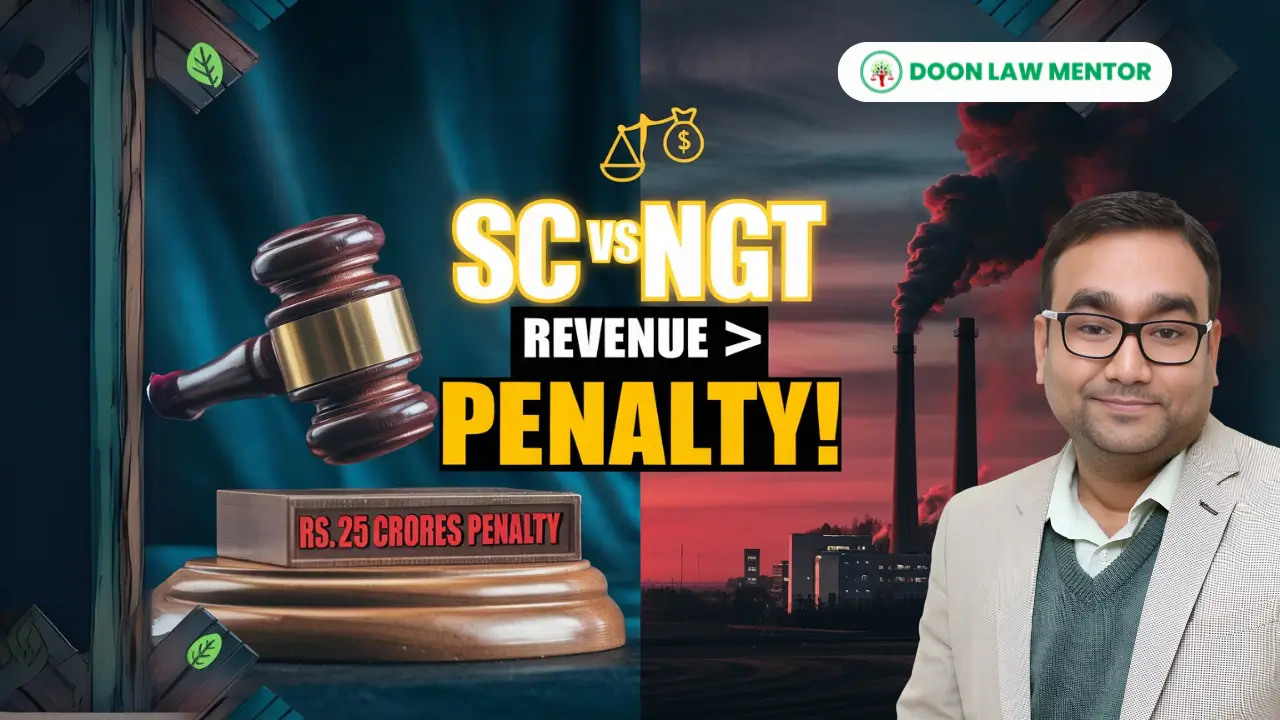Introduction
To Crack judiciary exams in India is a dream for many aspiring lawyers. The prestige, the responsibility, and the opportunity to make a difference in society make these exams highly sought after. The Ultimate Guide to Judiciary Exams provides comprehensive insights, strategies, and tips to help you achieve your goal. This guide is designed to help you navigate the complexities of these exams with ease.
The Ultimate Guide to Judiciary Exams in India covers everything from eligibility criteria and exam patterns to detailed study plans and preparation tips. Whether you’re a fresh graduate or a working professional, this guide will equip you with the knowledge and tools you need to succeed. With the right approach and dedication, cracking judiciary exams is within your reach.
In this Ultimate Guide to Judiciary Exams, we will delve into the nitty-gritty of the preparation process. From understanding the syllabus to choosing the right study materials, we’ve got you covered. Our aim is to provide you with a roadmap that will lead you to success in your judiciary exam journey.
Table of Contents
Chapter 1: Understanding Judiciary Exams in India
1.1 What are Judiciary Exams?
Judiciary exams, also known as judicial services exams, are competitive exams conducted by various states in India to recruit judges for the subordinate judiciary. These exams are crucial for maintaining the integrity and efficiency of the judicial system in India. Judiciary exams serve as a gateway for law graduates to enter the esteemed judicial services, where they can contribute to the administration of justice.
1.2 Eligibility Criteria
To be eligible for judiciary exams, candidates must meet specific criteria related to age, educational qualifications, and professional experience. Generally, candidates must hold a degree in law (LLB) from a recognized university and be enrolled as an advocate under the Advocates Act, 1961. Additionally, candidates must fulfill the age requirements, which typically range from 21 to 35 years, although this may vary depending on the state and category of the candidate.
1.3 Exam Pattern and Syllabus
The judiciary exams typically consist of three stages: Preliminary Examination, Mains Examination, and Viva-Voce (Interview). The syllabus includes a mix of law subjects, general knowledge, English, and regional language. Each state has its own specific syllabus, so it’s important to refer to the official notification of the respective state.
Preliminary Examination
The Preliminary Examination is an objective type test, consisting of multiple-choice questions (MCQs). It serves as a screening test to shortlist candidates for the Mains Examination. The questions in the Preliminary Examination cover topics such as general knowledge, current affairs, legal aptitude, and basic law subjects. The marks obtained in the Preliminary Examination are not considered for the final selection.
Mains Examination
The Mains Examination is a descriptive type test, consisting of several papers on various law subjects and general studies. The law papers cover topics such as constitutional law, criminal law, civil law, and procedural laws. The general studies papers include subjects like general knowledge, English language, and regional language. The Mains Examination is designed to test the candidate’s knowledge, analytical skills, and writing abilities.
Viva-Voce (Interview)
The Viva-Voce is the final stage of the judiciary exam process. It is a personal interview conducted by a panel of experts to assess the candidate’s personality, communication skills, and suitability for the judicial services. The interview panel evaluates the candidate’s knowledge of law, current affairs, and ethical values. The marks obtained in the Viva-Voce are added to the marks obtained in the Mains Examination to determine the final merit list.
Chapter 2: Crafting an Effective Study Plan
2.1 Assessing Your Current Level
Before diving into preparation, assess your current knowledge and skills. Identify your strengths and weaknesses to tailor your study plan accordingly. Take mock tests and review previous year question papers to gauge your level of preparation. Understanding your current standing will help you create a realistic and achievable study plan.
2.2 Creating a Study Schedule
A well-structured study schedule is key to effective preparation. Allocate specific time slots for each subject and ensure a balance between law subjects and general studies. Stick to your schedule diligently to cover the entire syllabus within the stipulated time. Break down your study plan into weekly and monthly goals to track your progress. Include time for revision and mock tests in your schedule.
2.3 Selecting Study Materials
Choosing the right study materials is crucial. Refer to standard textbooks, reference books, and study guides specifically designed for judiciary exams. Online resources, such as video lectures and e-books, can also be highly beneficial. Some recommended books for judiciary exam preparation include:
- “Introduction to the Constitution of India” by D.D. Basu
- “Criminal Law” by Ratanlal & Dhirajlal
- “Civil Procedure Code” by C.K. Takwani
- “Law of Evidence” by Batuk Lal
- “The Indian Penal Code” by Ratanlal & Dhirajlal
2.4 Time Management
Effective time management is essential during your preparation. Divide your time efficiently between studying, revising, and taking mock tests. Prioritize topics based on their weightage in the exam and focus on high-scoring areas. Use techniques such as the Pomodoro Technique, which involves studying for 25 minutes and taking a 5-minute break, to maintain focus and productivity.
Chapter 3: Subject-Wise Preparation Strategy
3.1 Law Subjects
3.1.1 Constitutional Law
Start with the basics of constitutional law and gradually move to advanced topics. Focus on landmark judgments and constitutional amendments. Refer to books by eminent authors and make concise notes for quick revision. Important topics include:
- Fundamental Rights
- Directive Principles of State Policy
- Union and State Legislature
- Judiciary and Judicial Review
- Constitutional Amendments
3.1.2 Criminal Law
Understand the key provisions of the Bhartiya Nyaya Sanhita 2023, Bhartiya Nagrik Suraksha Sanhita 2023, and Bhartiya Sakshya Adhiniyam 2023 Practice case studies and analyze important judgments to strengthen your conceptual clarity. Important topics include:
- General Principles of Criminal Law
- Offenses Against the Human Body
- Offenses Against Property
- Criminal Procedure and Investigation
- Law of Evidence
3.1.3 Civil Law
Study the provisions of the Civil Procedure Code (CPC), Contract Act, and Transfer of Property Act in detail. Solve case laws and hypothetical scenarios to apply theoretical knowledge practically. Important topics include:
- General Principles of Civil Law
- Jurisdiction and Res Judicata
- Law of Contracts
- Property Laws and Transfer of Property
- Specific Relief Act
3.2 General Knowledge and Current Affairs
Stay updated with the latest news and events by reading newspapers, magazines, and online portals. Focus on topics related to the Indian polity, economy, international relations, and important national events. Some recommended sources for general knowledge and current affairs include:
- The Hindu and The Indian Express (newspapers)
- Yojana and Kurukshetra (magazines)
- PRS Legislative Research (website)
- Rajya Sabha TV and Lok Sabha TV (channels)
3.3 English Language and Regional Language
Enhance your language skills by practicing comprehension passages, essay writing, and precise writing. For the regional language, focus on grammar, vocabulary, and translation exercises. Recommended resources include:
- “High School English Grammar & Composition” by Wren & Martin
- “Word Power Made Easy” by Norman Lewis
- Regional language grammar books and dictionaries
Chapter 4: Revision and Practice
4.1 Importance of Revision
Regular revision is crucial to retain information and improve recall during the exam. Create a revision schedule and stick to it. Use flashcards, mind maps, and summary notes to make revision more effective. Revise important topics and landmark judgments periodically to keep them fresh in your memory.
4.2 Taking Mock Tests
Mock tests are an excellent way to simulate the exam environment and assess your preparation. Take full-length mock tests regularly and analyze your performance. Identify areas of improvement and work on them diligently. Some platforms offering mock tests for judiciary exams include:
- Online Test Series by various coaching institutes
- Previous year question papers
- Mock test books and guides
4.3 Analyzing Previous Year Papers
Reviewing previous year question papers helps you understand the exam pattern, difficulty level, and types of questions asked. Practice solving these papers within the given time frame to improve your speed and accuracy. Analyze the common trends and frequently asked questions to focus on important topics.
4.4 Joining Coaching Classes
If self-study is not yielding the desired results, consider joining a coaching institute. Experienced faculty, structured courses, and peer interaction can provide valuable insights and guidance. Some renowned coaching institutes for judiciary exams include:
Chapter 5: Exam Day Strategy
5.1 Preparing for the Exam Day
Ensure you have all the necessary documents and stationery ready the night before the exam. Get a good night’s sleep and eat a healthy breakfast on the exam day. Reach the exam center well in advance to avoid any last-minute stress. Carry essential items such as:
- Admit card
- Photo ID proof
- Black or blue ballpoint pens
- Water bottle
- Snacks for breaks
5.2 Managing Exam Stress
Stay calm and composed during the exam. Read the questions carefully and allocate time to each section wisely. Attempt the easier questions first to build confidence and then move on to the tougher ones. Practice relaxation techniques such as deep breathing and visualization to manage exam stress.
5.3 Time Allocation
Divide your time effectively among the sections. Avoid spending too much time on a single question. Keep an eye on the clock and ensure you have enough time to review your answers before submitting the paper. Develop a time management strategy during your mock tests and stick to it during the actual exam.
5.4 Post-Exam Analysis
After the exam, analyze your performance objectively. Identify the mistakes you made and the areas where you can improve. This analysis will help you refine your strategy for future exams. Discuss your performance with peers and mentors to gain additional insights.
Chapter 6: Frequently Asked Questions (FAQs)
6.1 How many hours should I study daily for judiciary exams?
It varies for each individual, but ideally, 6-8 hours of focused study daily should suffice. Quality of study matters more than quantity. Ensure you take regular breaks and maintain a healthy work-life balance.
6.2 Is coaching necessary for judiciary exam preparation?
Coaching can be beneficial, but it is not mandatory. Many candidates have cleared judiciary exams through self-study and disciplined preparation. Evaluate your strengths and weaknesses to decide if coaching is right for you.
6.3 How important are mock tests for judiciary exam preparation?
Mock tests are extremely important as they help you assess your preparation level, improve time management skills, and get accustomed to the exam pattern. Regularly taking mock tests will boost your confidence and performance.
6.4 Can I prepare for judiciary exams while working full-time?
Yes, it is possible with effective time management and a disciplined study schedule. Utilize weekends and holidays for intensive study sessions. Consider taking a leave of absence or reducing work hours closer to the exam date.
6.5 What are the best books for judiciary exam preparation?
Some recommended books include:
- “Introduction to the Constitution of India” by D.D. Basu
- “Criminal Law” by Ratanlal & Dhirajlal
- “Civil Procedure Code” by C.K. Takwani
- “Law of Evidence” by Batuk Lal
- “The Indian Penal Code” by Ratanlal & Dhirajlal
6.6 What is the difference between Judiciary Exams and UPSC Civil Services Exam?
Judiciary exams focus specifically on recruiting judges for the subordinate judiciary, while the UPSC Civil Services Exam recruits candidates for various administrative positions in the Indian government. The syllabus and exam pattern for both exams are different, with judiciary exams emphasizing law subjects.
6.7 How can I improve my writing skills for the Mains Examination?
Practice writing essays, precise, and answers regularly. Focus on clarity, coherence, and conciseness. Read and analyze high-quality essays and answers to understand the writing style and structure. Seek feedback from mentors and peers to improve your writing skills.
6.8 Are there any specific online resources for judiciary exam preparation?
Yes, several online platforms offer study materials, video lectures, mock tests, and current affairs updates for judiciary exam preparation. Some popular online resources include:
6.9 How important is it to stay updated with current legal developments?
Staying updated with current legal developments is crucial as judiciary exams often include questions on recent judgments, amendments, and legal news. Follow legal news portals, journals, and websites to keep yourself informed about the latest legal developments.
6.10 What are the common mistakes to avoid during judiciary exam preparation?
Some common mistakes to avoid include:
- Neglecting certain subjects or topics
- Relying solely on coaching and not doing self-study
- Not practicing enough mock tests
- Ignoring the importance of revision
- Poor time management during the exam
Chapter 7: Conclusion
Cracking judiciary exams in India requires a strategic approach, dedicated preparation, and consistent effort. With the right resources and a well-structured study plan, you can achieve your dream of becoming a judge. The Ultimate Guide to Judiciary Exams is your companion in this journey, providing you with the knowledge and tools to succeed. Remember, perseverance and hard work are the keys to success. Good luck!





